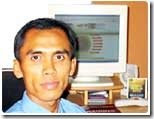A best-selling training for managers and team members involved in technical project management! This enriched program gives you three days of knowledge and practice in managing projects related to R&D, construction, capacity expansion, instrumentation and control, plant outages and other aspects of technical project management. Reduce task cycle times to achieve the fast-track results required in the technical field. And you’ll be exposed to technical project management terminology, codes, conventions and performance standards of public and private sources, such as ISO, ANSI, ASME, IEEE and more. How You Will Benefit - Apply WBS and network development
- Identify potential problems and solve them using troubleshooting techniques
- Track projects more effectively
- Create status reports that show top management where budgeting, scheduling and manpower trends are headed
- Cope with tight technical project schedules
What You Will Cover Overview of Essential Project Management Tools - Project management framework and terminology—process groups and the Nine Knowledge Areas of the PMBOK
- Definition of a technical project management environment
- Life cycles in a technical environment
Essentials for Leading Project Teams - Leading in a technical environment
Project Planning: Beginning with Scope Management - Using the SMART model when writing objectives
- Creating the detailed scope statement
Defining Project Activities - Creating a customized WBS
- Technical project WBS examples
Developing a Dynamic Project Schedule - Types of network diagrams
- Overview of critical path methodology
Establishing a sound estimating process - Five considerations when making estimates
- Consideration of risks when estimating—three-point estimates
Components of Project Planning - The planning process group
- Project performance baselines
Technical Project Planning Methodologies - Identify different approaches to planning technical projects: rolling wave planning…stage gate process…critical chain project management
- Common construction project life cycle
- Common pharmaceutical project life cycle
Monitoring and Controlling Projects - Status reports… project baselines…identifying variances
Project Closure - Administrative closure vs. contractual closure
Who Should Attend R&D professionals, engineers (across all specialties), scientists and principal investigators, project engineers, facility engineers, plant managers and anyone else who administers technical projects. Note: IT professionals are encouraged to attend Information Technology Project Management.
Extended Training Description Learning Objectives - Apply WBS and Network Development
- Identify Potential Problems and Solve Them Using Troubleshooting Techniques
- Track Projects More Effectively
- Create Status Reports That Show Top Management Where Budgeting, Scheduling and Manpower Trends Are Headed
- Cope with Tight Technical Project Schedules
Overview of Project Management Framework - Define Project Management Framework and Terminology
- Differentiate between Operations and Projects
- Differentiate between Product Life Cycle and Project Life Cycle
Essentials for Leading Project Teams - Describe How to Lead Others By Communicating, Motivating and Solving Problems
- Differentiate between Practitioner and Project Manager
- Compare the Characteristics of a Leader Versus Those of a Manager
- Describe the Roles and Responsibilities of a Project Manager Versus Those of a Project Coordinator
- Identify the Five Stages of Negotiation
Scope Management: Beginning Project Planning - Describe the Purpose and Content of the Project Charter
- Identify the Elements of a Project Scope Statement
- Document a Project Scope Statement Using a Standard Template
- Use the SMART Model When Writing Objectives
- Describe the Purpose of the Kick-Off Meeting
Developing Project Activities - Develop a Work Breakdown Structure (WBS)
- Define Project Activities
- Develop Project Milestones
Developing a Dynamic Project Schedule - Identify the Sequence of Activities
- Develop the Project Schedule
Project Estimating Techniques - Develop Project Resource, Time and Cost Estimates
- Demonstrate the Use of Three-Point Estimates
- State How Estimates Are Impacted By Risks
Components of Project Planning - Identify the Components of a Project Plan
- Describe the Five Project Risk Management Processes in the Planning Process Group
- Identify Tools Used During Quality Control and Quality Assurance
- Describe the Individual Baselines That Make Up the Project Performance Baseline
Technical Project Planning Methodologies - Identify the Approaches and Methodologies Used in Technical Projects
- Identify Processes Best Suited for Your Project Environment
- Identify the Unique Characteristics of a Construction Project and Their Application to Other Technical Projects
Monitoring and Controlling Projects - Identify Methods and Techniques for Project Control
- Describe the Concept of Comparing Status Information to Project Baselines to Identify Variances
- Use Earned Value to Analyze Project Performance
How to Close a Project - Identify the Elements in the Project Closure Procedure
- Describe the Ways Projects Are Terminated
- Explain the Importance of a Repository
FOCUS TRACO INDONESIA Management & Technical Training Course Seminar Provider Download 2009 FOCUS Training Catalog |  |
Instructor

Schedule

Venue

Tuition Fee
| Rp. | 4.800.000,- | | | per participant, excluding accommodation & tax. | 
Registration
| | Send by email -or- fax to: | PT. FOCUS TRACO INDONESIA
Wisma Pakuan, Jl. Pakuan 12
BOGOR - 16143
 |


Tidak ada komentar:
Posting Komentar